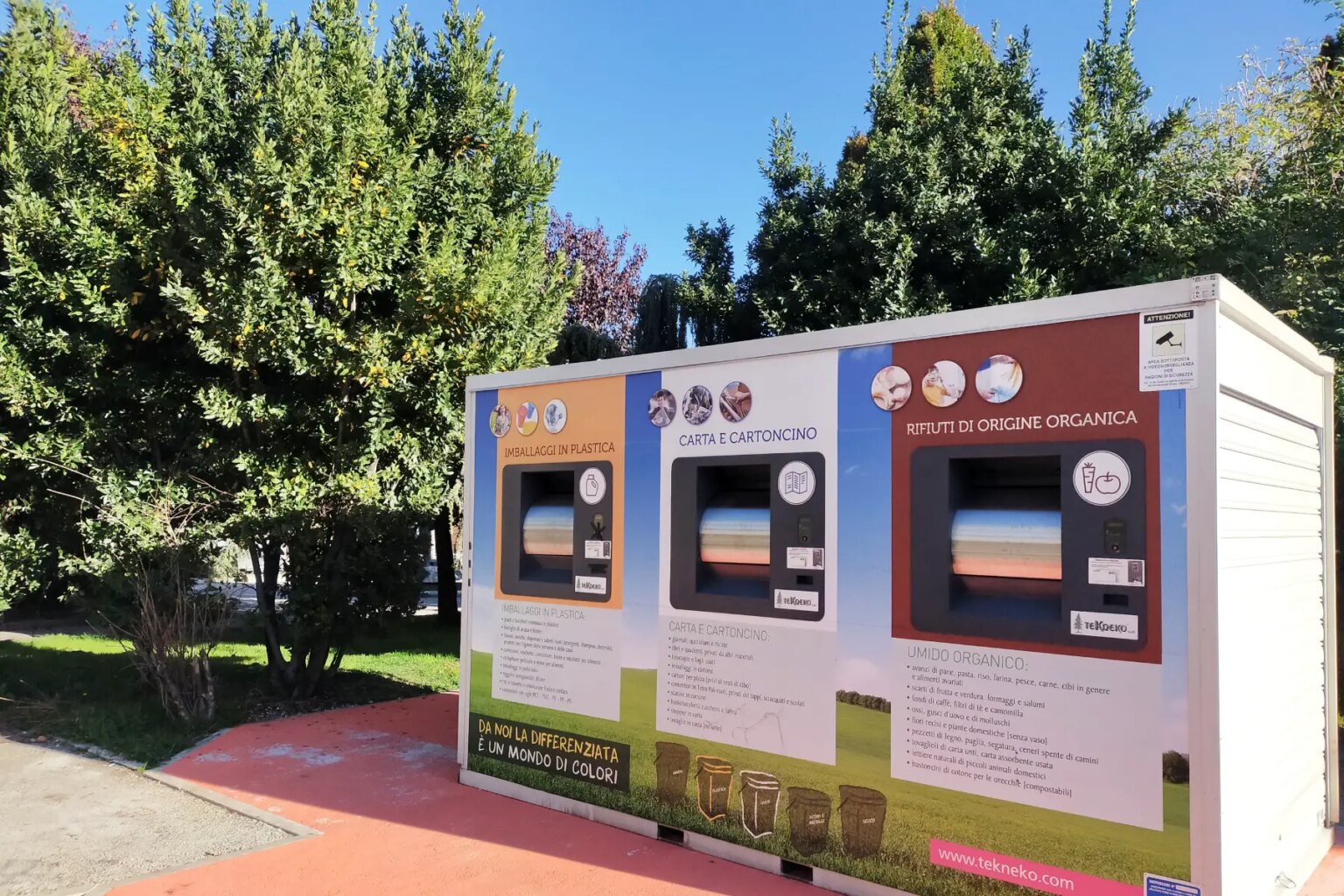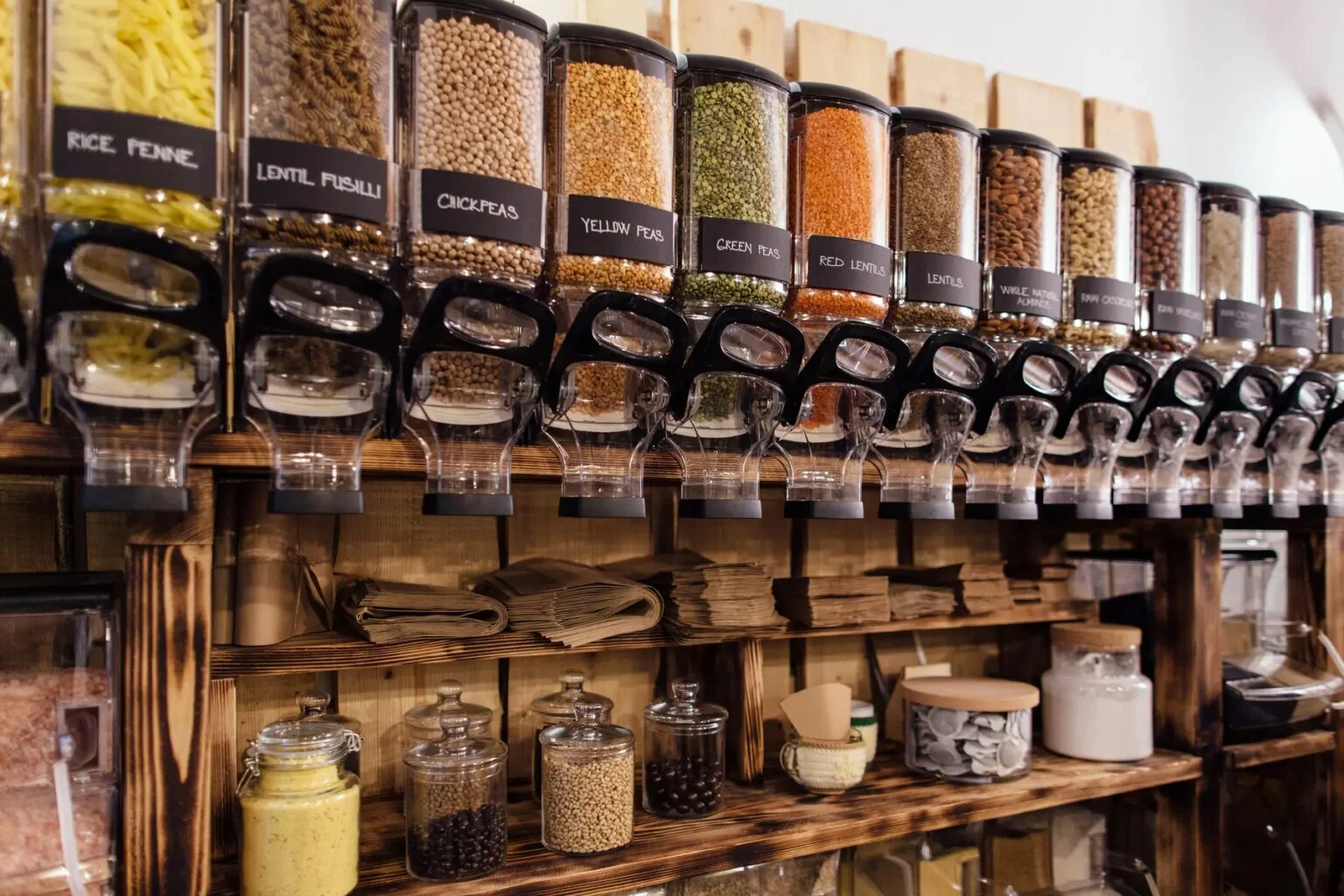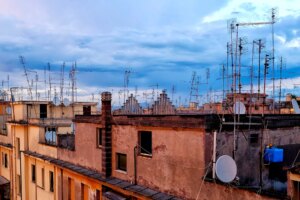How you recycle will depend a lot on where you live. The Italian government is keen to retain its image as a leader in sustainability. That is why Italy keeps improving its waste management systems and services to encourage residents and businesses to reuse, reduce, and recycle. Of course, municipalities (comuni) will also fine those who do not comply.
Navigate the rules and expectations of garbage and recycling in Italy with the following topics:
Kena Mobile
Keep in touch with the people that matter with Kena Mobile. This mobile service offers simple SIM-only tariffs including 4G data, SMS, and calls. Check out their website to find information on using your SIM abroad and deals including entertainment channels. Stay connected in Italy with Kena Mobile.
The recycling system in Italy
Italy has come a long way in the past 25 years in terms of garbage management. In fact, Italy is now a recycling leader in the European Union (EU), according to the Circular Economy Network.
In 2020, the country recycled 72% of all trash, compared to an EU average of 53%. This starkly contrasts with figures from 1997, when 80% of all trash ended up in dumps. That said, figures show that recycling habits are not equal across the country, with the North generally recycling more than the South.
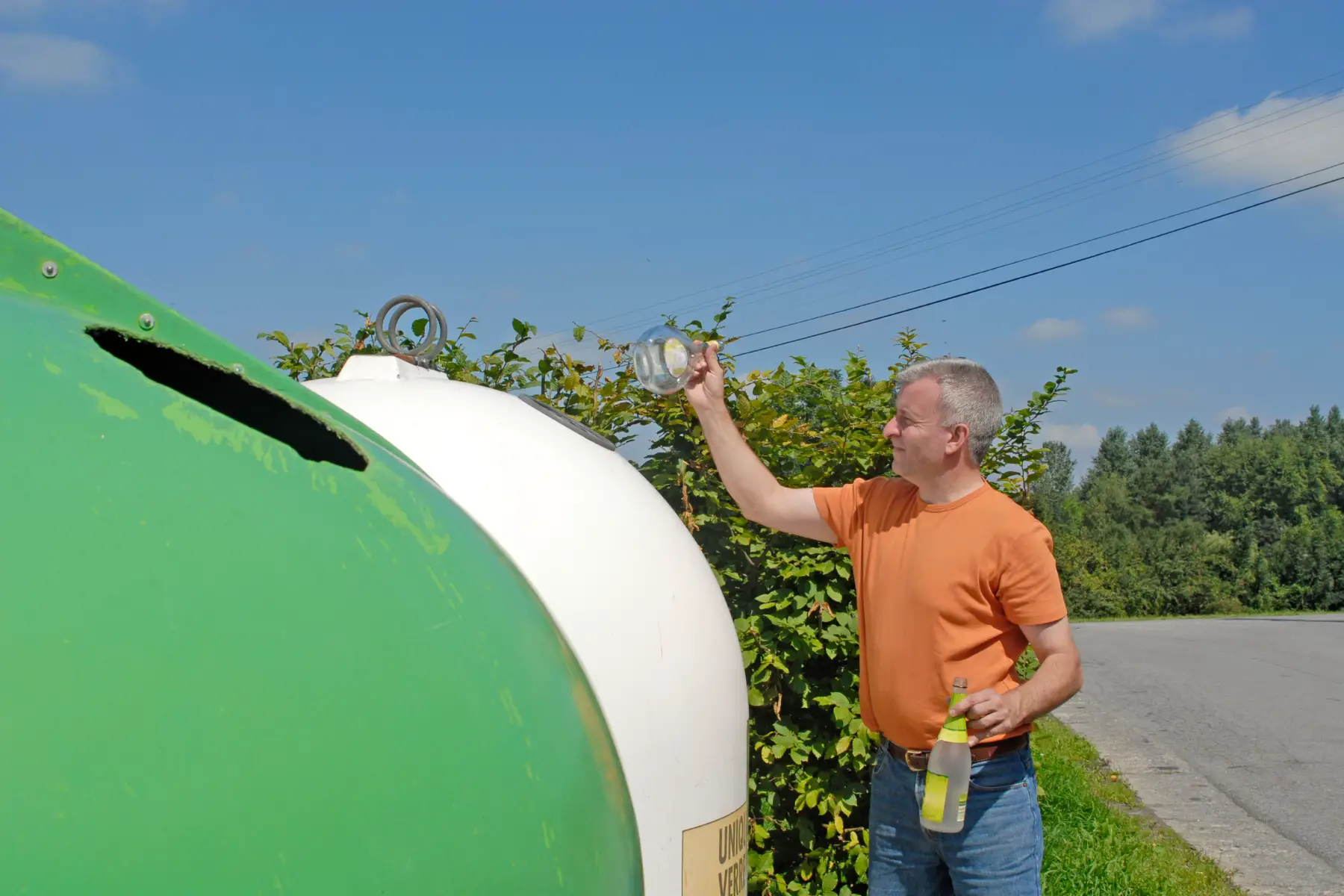
In 2022, the Italian government voted for the National Circular Economy Strategy. This initiative aims to:
- Introduce a new digital waste-tracking system
- Provide tax incentives to support recycling activities
- Revise the environmental taxation system and the right to reuse and repair
Additionally, the government will introduce a plastic tax in 2024 to reduce the production and purchasing of single-use plastics around the country.
Local waste tax (tassa sui rifiuti – TARI) finances the municipal garbage collection and disposal services. Each citizen has to pay an amount that changes according to their municipality. Italy also has active collection and recycling consortia that pay cities to collect their garbage. These contracted companies can be private, public, or a combination of the two.
Sorting your trash
How you should separate your trash depends on where you live. However, you can typically split your trash into the following categories:
- Paper
- Organic garbage
- Plastic
- Metal
- Glass
- General trash (non-recyclable)
Municipalities can also group certain categories (e.g., plastic and metal), so be sure to check how your area sorts garbage. Each type is usually collected once a week, although dates vary depending on the municipality.
A few handy apps are also available to help you recycle correctly:
What happens to recycled materials?
In Italy, recycled materials go to transfer stations, get sorted, compacted if necessary, and finally loaded onto larger trucks. These trucks then transport the recyclables to the final processing facilities.
Paper and cardboard are pressed into large bales and then taken to a paper mill where they are combined with water and blended into pulp. After further treatment to remove contaminants, the final material is dried and sent to paper factories to be processed into new paper. Around 90% of bags, boxes, and newspapers use recycled paper.
Plastic garbage is sorted by type and then sold to companies to process for the actual recycling stage. Consequently, recycled plastic can become many new things, and can even return as benches, fences, and playground equipment.
When recycling glass, there is no need to add new material, which makes the process relatively simple. In 2022, over 70% of glass bottles were derived from recovered glass material. In addition, aluminum and glass have the advantage of being indefinitely recyclable.
Unfortunately, journalists and authorities have recently uncovered mafia-related operations affecting trash illegally, affecting countries like Italy, Bulgaria, and China.
How to recycle in Italy
As said before, how you recycle will depend on your city. Even municipalities within the same region may recycle differently from each other. For example, some allow you to sort garbage at home in specific bags, and local services will collect these each week. In other municipalities, you have to take any recyclable trash to large containers placed on the street.
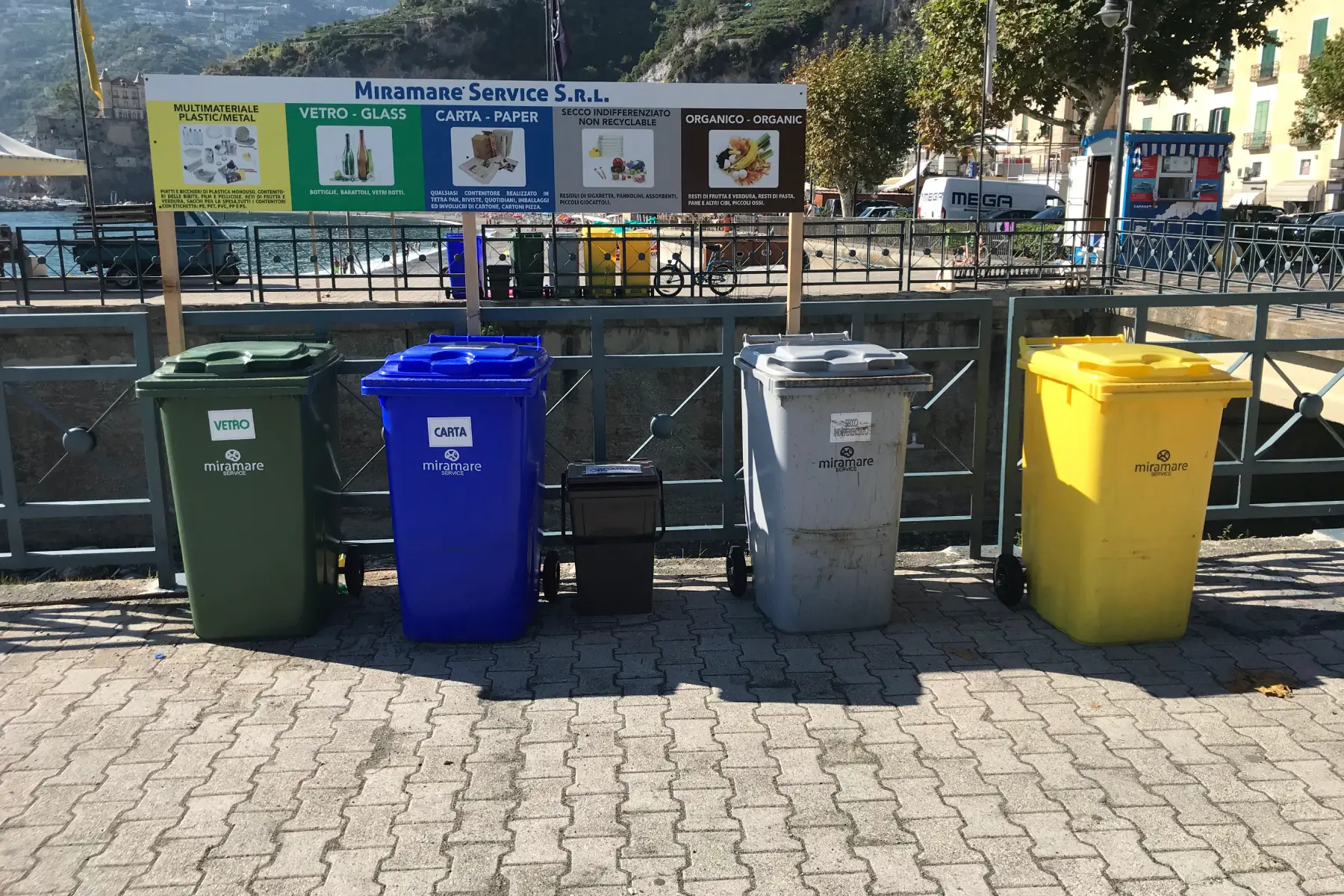
You can usually use a single container to collect multiple materials, such as plastic, metal, and glass. The sanitation services will sort these at a later stage.
However, there is an attempt to simplify the recycling process with color-coding standardization for trash containers across Italy. Apart from some exceptions, you can sort out your trash as follows:
| Color | Type of garbage |
| Blue | Paper |
| Brown | Organic trash |
| Yellow | Plastic (recyclable) |
| Turquoise | Metals |
| Green | Glass |
| Grey | General trash (non-recyclable) |
Find out from your local municipality how to sort garbage in your area. Alternatively, download the app Junker per la differenziata to check the garbage-collecting schedule in your neighborhood.
To ensure you recycle effectively, here are some key Italian phrases to look out for:
| Italian phrase | Translation |
| Imballaggi in plastica | Plastic packaging |
| Carta | Paper |
| Scarti alimentari e organici | Food and organic trash |
| Vetro | Glass |
| Indifferenziato | General trash (literally means ‘undifferentiated’) |
| Sacchi compostabili | Compostable bags |
| Buste non coprenti | Transparent bags |
| Rifiuti non riciclabili | Non-recyclable garbage |
| Bidone della spazzatura | Trash can |
Recycling paper
You can recycle the following paper and cardboard items:
- Newspapers
- Books
- Old magazines
- Cardboard boxes
Each year, Italy recycles around 5.2 million metric tons of paper materials. Some tips:
- If the paper is contaminated or greasy, like pizza boxes, you must dispose of it directly as general trash
- Fold down and scrunch up paper to take up less space in municipal containers
- To help the sorting process, remove any impurities like food or stickers
- Receipts or baking paper must go in the general trash
- Read and follow any recycling instructions on the packaging
- Check local municipality instructions, as they differ per region
Recycling plastic
Not all plastics can be recycled in Italy. Of the 3.7 million metric tons of plastic garbage produced in 2020, only 1.6 million metric tons were accepted. Roughly 620,000 metric tons (PDF, in Italian) of this trash was recycled.
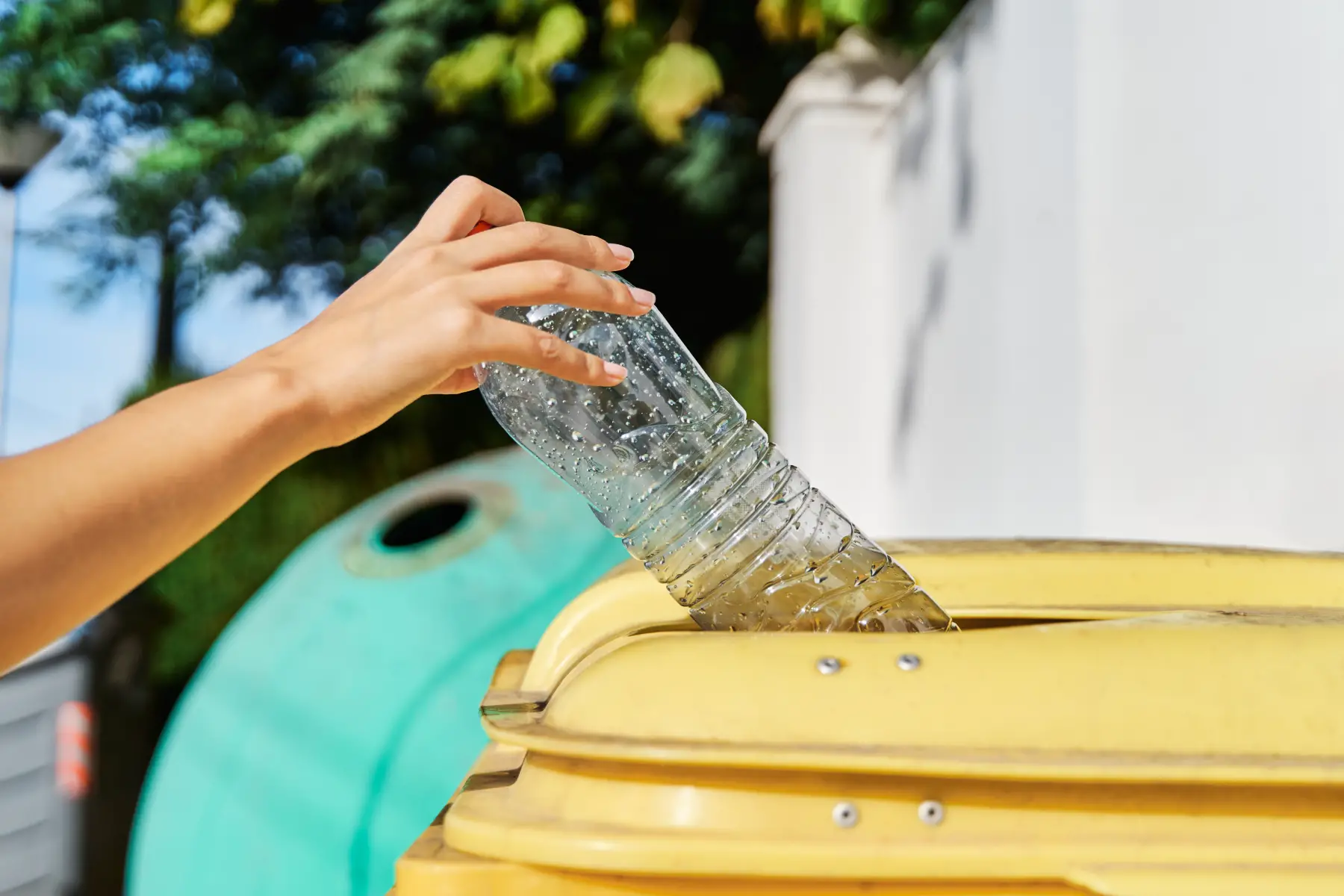
Plastic garbage generally goes in yellow bags or containers. However, always check with your local municipality, as this varies.
The plastic recycling consortium Corepla advises residents to:
- Only recycle plastic packaging and bottles, and not things like pens, toys, glasses, and tools. Check with your municipality to see where and how you can dispose of these items.
- Separate the plastics from any other material, such as the plastic sheet in an envelope and the lid on top of a yogurt container
- Wash out plastic containers to remove contaminants like food
- Crush or flatten containers
- Throw away plastic bottles with the top still screwed on
Recycling glass
Once again, the process for recycling glass will depend on where you live.
Some towns collect glass separately in green containers, while others pick it up from mixed recycling containers. In 2022, Italy recycled around 2.2 million metric tons of glass per year. The glass recycling consortium Consorzio per il riciclo del vetro (CoReVe) gives the following guidelines for recycling glass:
- Only include glass bottles and jars, no other glass debris
- Never include similar materials like crystal or pyrex (they have different chemical elements)
- Do not dispose of glass containers in plastic bags
- Separate any other materials (e.g., metal caps from bottles)
- Remove any caps or unglued labels from the glass if you can, but no need to scrub off labels if they can’t easily detach
- Empty and clean the containers to remove food
Recycling metal
Metal and aluminum tend to be collected along with other recyclable materials (i.e., plastic and/or glass). You might sometimes see dedicated turquoise containers for metal. Metal recycling in Italy includes aluminum, iron, and steel. As for other materials, the collection method and schedule will vary depending on where you live.
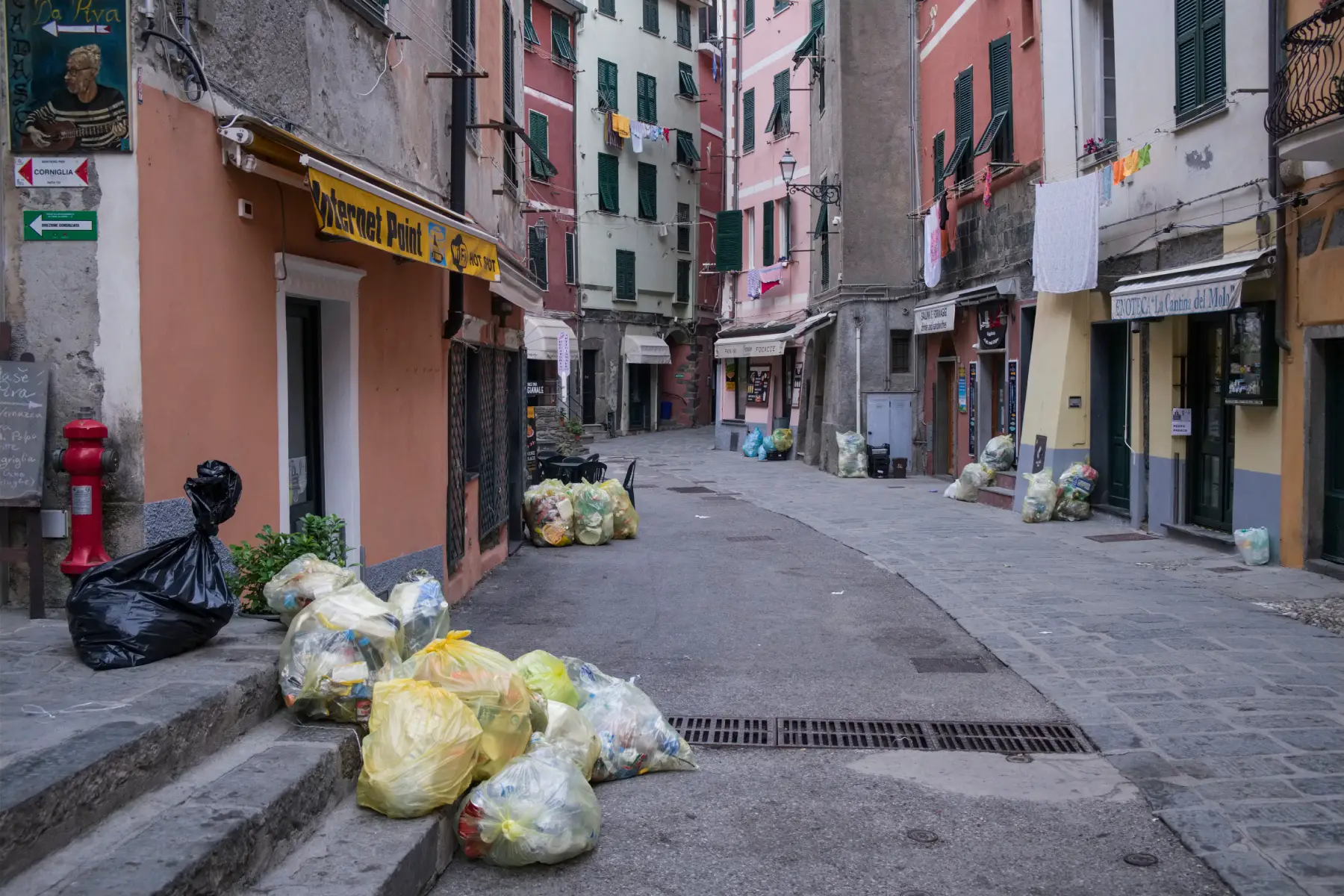
The relevant recycling consortium, Consorzio Nazionale Imballaggi Alluminio (CiAl), has a handy visual guide to show you exactly which household objects can go into metal and aluminum recycling. Examples include:
- Aerosol cans
- Thin metal leaf
- Metal screw caps on bottles
- Drink cans
If possible, flatten your metals before recycling. Rinsing them out, however, is not necessary.
Recycling clothes and materials
According to L’associazione tessile riciclato Italiana (AS.T.R.I), an Italian textile recycling association, the country recycles 22,000 metric tons of textiles per year. As of 2022, municipalities are legally obliged to provide collection points for fabrics and clothing. Of the collected materials, 68% are reused, while 29% are recycled into raw materials. Local social cooperatives usually handle the collection and sorting process for textiles.
You can recycle clothes, accessories, and shoes at these collection points. The appearance of these bins varies, so be sure to check with your municipality to find out where they are located.
Recycling other household items
In 2022, services collected over 360 kilograms (kg) of electric and home appliances around Italy, including fridges, washing machines, and televisions. Municipalities typically have collection centers where you can recycle broken appliances, batteries, used oil, and medicines. You may also have specific collection points for these in your local pharmacy or supermarket.
Alternatively, if you wish to recycle bulky home appliances, find out from your local retailer if they have a recycling program. They may give you a discount on a new replacement. Replacing old appliances with energy-efficient ones is one way to live more sustainably.
Recycling tips in Italy
Looking for more ways to make Italy greener? Here are some tips to take your recycling to the next level:
- Your own containers – opt for reusable containers and bags to reduce plastic packaging and pollution when buying groceries
- Zero-waste shops – these stores offer bulk cereals, nuts, dried fruit, and even detergent in dispensers, which helps reduce waste, especially if you take your own containers
- Municipal waste management instructions – become familiar with the process to live more sustainably and avoid fines
- Prepare your meals – rather than buying lunch on the go, taking homemade meals to school or work
Composting
Municipalities must collect organic trash around Italy, including:
- Food
- Garden waste
- Bioplastics
- bags
- packaging
- disposable tableware made of compostable material
Every bioplastic packaging must bear a certification mark of compostability (usually CIC, TUV, or DIN). You must place this waste in biodegradable and compostable bioplastic bags with the EN 13432 certification.
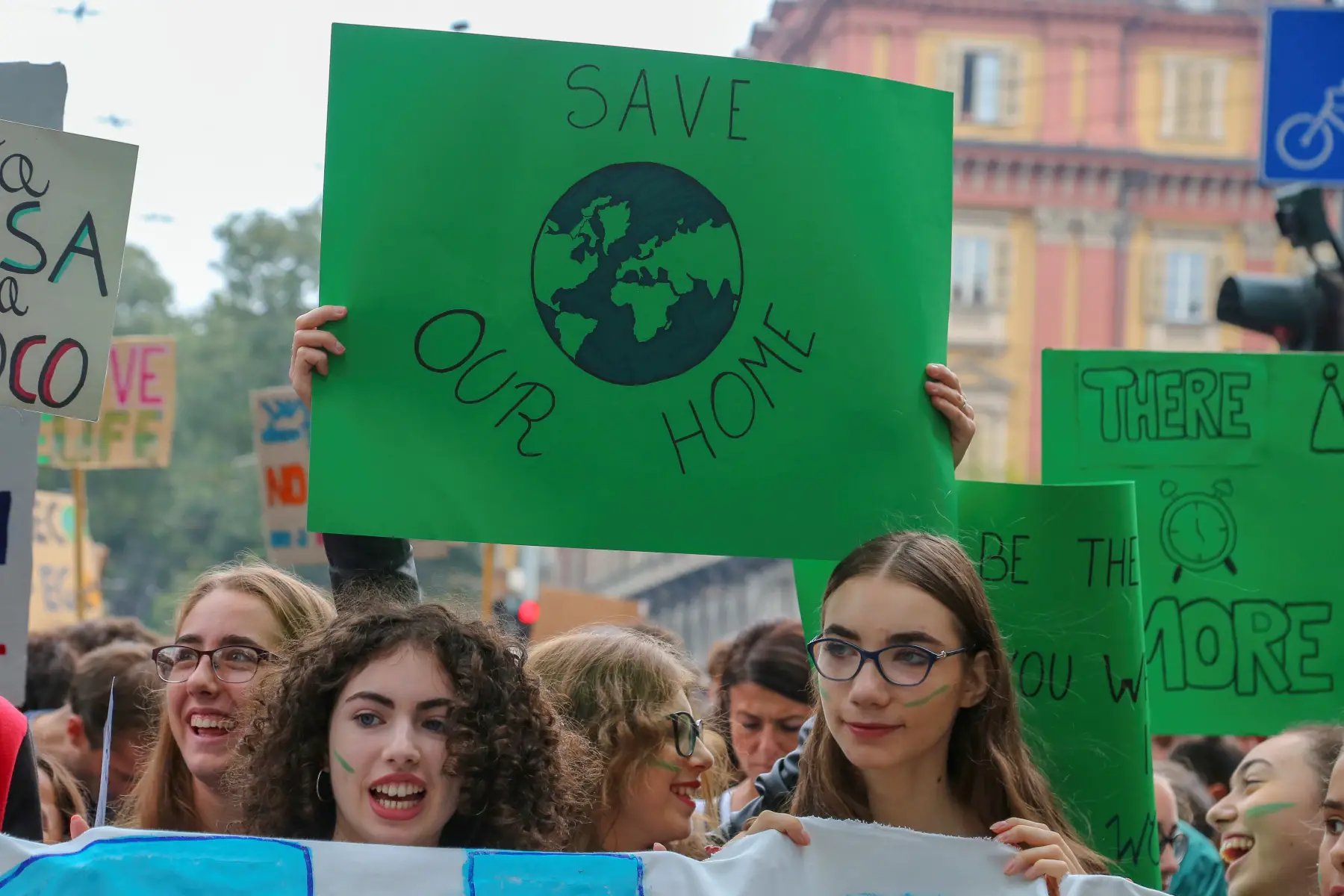
Organic wet trash accounts for almost 40% of the total trash produced in Italy. Each year, it generates 2 million metric tons of compost. According to the National Institute for Environmental Protection and Research (Istituto Superiore per la Protezione e la Ricerca Ambientale – ISPRA), the country’s per capita treatment of organic waste in 2021 equated to 115 kg per inhabitant (PDF, in Italian). However, there are regional differences per person:
- North: 167 kg
- Center: 69 kg
- South: 71 kg
Composting food waste
The Italian government encourages citizens to compost their food waste at home. In certain regions, if you purchase a home composter, you can receive a 30% reduction on waste collection tax.
Biorepack, the national organic waste consortium, puts forward the following advice for composting food waste:
- Don’t overfill the biodegradable bag as it can tear
- Do not include nappies, cigarette butts, household dust, varnished wood, or sick plants with your food waste
- Do include small animal bones, wooden popsicle sticks, candies, and used paper napkins
- When it comes to pet waste, you can include excrement from small pets and only biodegradable cat litter
- You can include small quantities of plants material
- You can also include compostable packaging and crockery (it should have the EN 13432 certification)
Composting garden waste
In more remote areas, people tend to reuse their yard waste for their land. It saves them from having to dispose of their waste and acts as an organic fertilizer to grow a healthy yard.
While you can throw small plants into the general organic waste, you have to deal with bulkier garden waste separately. Municipalities have containers or collection points available for bulky green waste, known as isola ecologica (translated as ‘ecological island’).
Check with your local council to find the closest collection point.
Italian garbage collection
Each municipality organizes its local garbage collection, which varies across the country. Services to collect each type of garbage run on different days, whether from your doorstep or street containers. Familiarize yourself with this schedule – usually found on the municipal website – to avoid fines for doing it incorrectly.
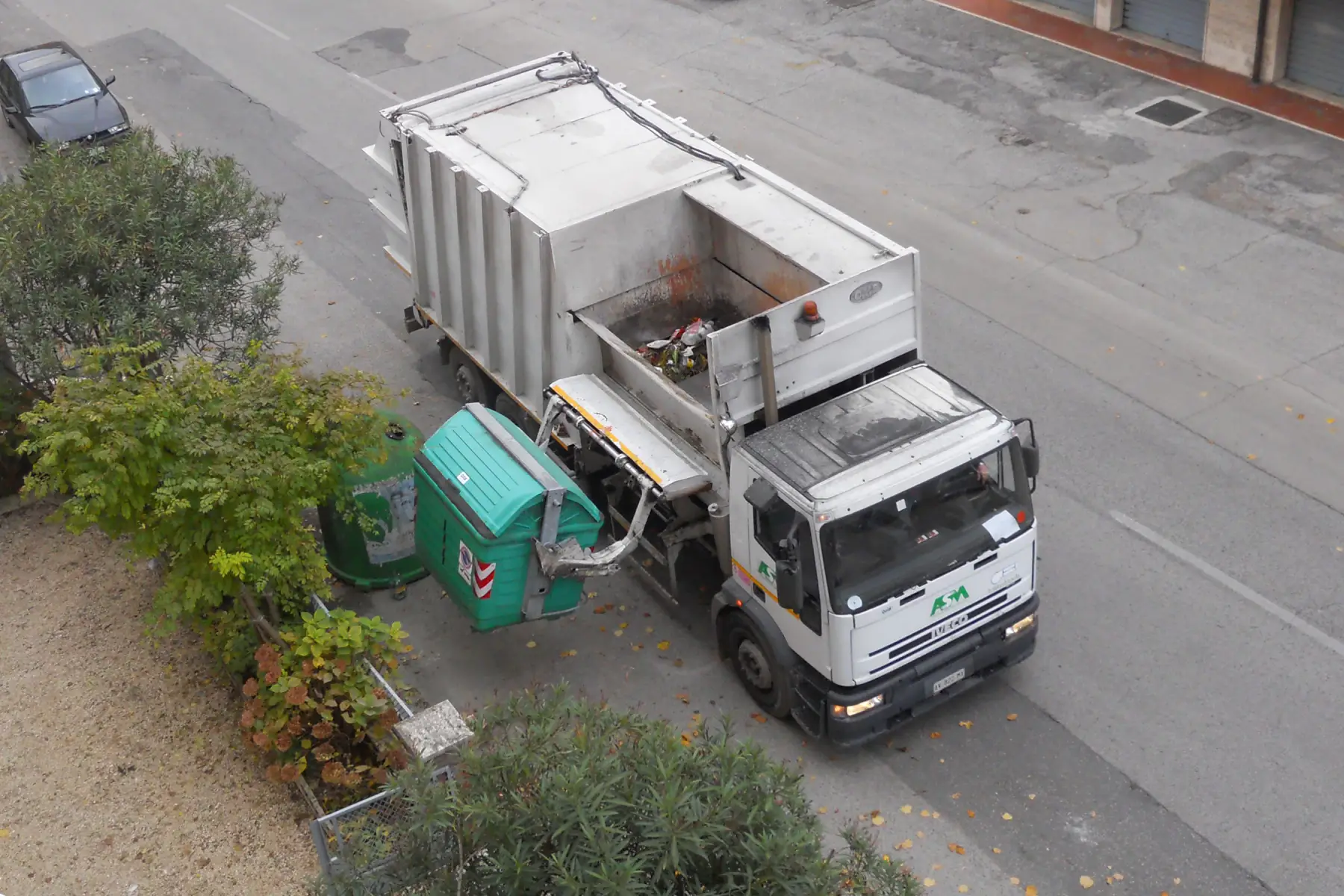
Alternatively, take a look at apps such as Riciclario and Puliamo. They will help you dispose of trash correctly according to where you live and provide garbage collection schedules.
Keep in mind the following when disposing of your garbage in Italy:
- Transparent bags: General waste and recyclables
- Biodegradable bags: Organic waste material
- Paper bags/no bags: Paper and cardboard trash
- No bags: Glass
Penalties for illegally dumping trash or recycling in Italy
Municipalities can fine individuals or whole apartment blocks if residents don’t sort their garbage correctly. Fines will vary depending on the municipality and the type of violation. For instance, in northern cities (e.g., Bologna) penalties can range from €300 to €3,000, and in southern cities (e.g., Trani), you can pay anything from €150 to 600.
You can receive a penalty for many different reasons. For example, people accidentally use the wrong garbage container or place their garbage bags outside on the wrong day. Other behavior that can result in a fine includes:
- Throwing loose trash into containers where there should only be closed bags
- Leaving trash bags next to the containers
- Dumping combustible, hazardous, or bulky garbage in anything other than the dedicated, municipal containers
- Failure to leave construction trash in a designated area or container
If you receive a fine, you can typically pay for it online on your municipality’s website. Otherwise, you can settle it in person at your local post office or municipality. Make sure you pay your penalty within five days, otherwise the amount will double.
Useful resources
- Circular Economy Network – publishes reports on sustainable development and the circular economy in Italy
- Dove Lo Butto? – a website (and app) to help you recycle trash correctly
- Ministero dell’Ambiente – Italian Ministry of the Environment
- AmaRoma – garbage disposal and recycling in Rome
